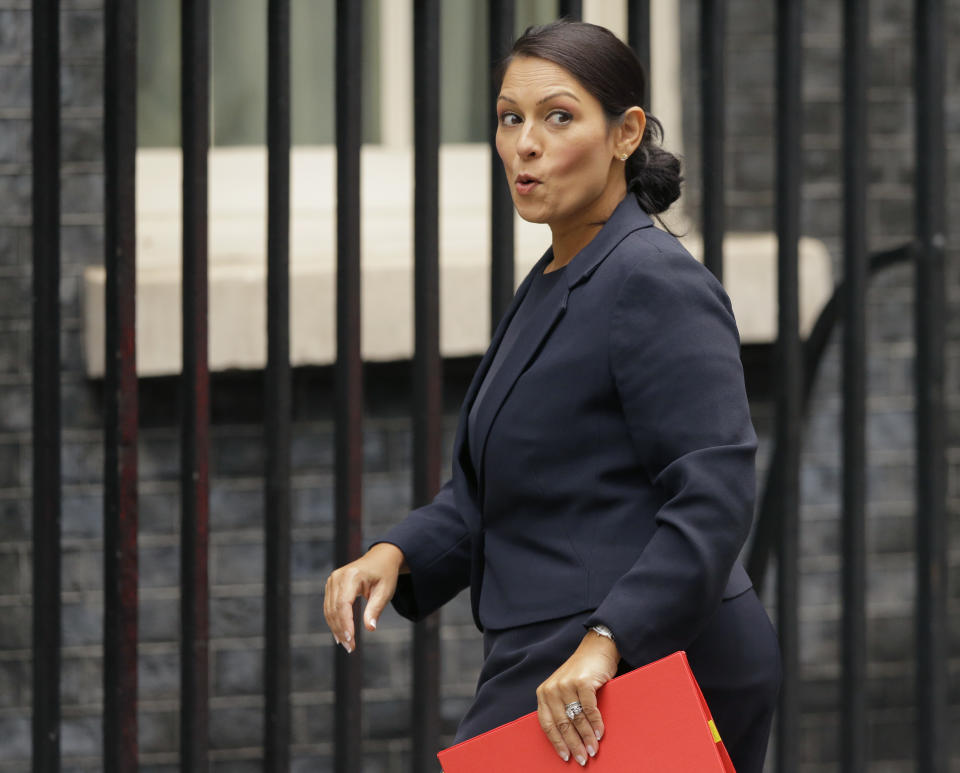What the UK's new Home Secretary has said about the death penalty

For many, Boris Johnson’s newly-appointed Home Secretary Priti Patel is a controversial choice - not least for her comments about the death penalty.
Ms Patel, a hard Brexiteer, once famously called for the return of capital punishment even if it led to the deaths of innocent people.
She told the BBC in 2011: “I do think that when we have a criminal justice system that continuously fails in the country and where we have seen murderers and rapists reoffend and do those crimes again and again I think that’s appalling.
“On that basis alone I would support the reintroduction of capital punishment to serve as a deterrent.”
She later appeared to row back on the issue, condemning the use of capital punishment abroad.
It’s not the only controversy to surround the MP for Witham in Essex.

Her new role as Home Secretary marks Ms Patel’s return to the cabinet after she was forced to resign in disgrace for holding secret meetings with Israeli government figures while on a “private holiday”.
She notably opposed open equal marriage, voting against marriage equality twice since becoming an MP in 2010.
The former international development secretary also came under fire for suggesting that Britain should use the potential for food shortages in Ireland as a bargaining chip to secure a better Brexit deal from the EU.
READ MORE
Theresa May signs off last PMQs by telling Corbyn that 'his time is up'
Her comments at the time sparked a furious backlash, with critics claiming that using food shortages as a bargaining chip was inappropriate, especially given Ireland’s history of famine.
As her @theSNP shadow I congratulate Priti Patel on her promotion to Home Secretary but I deplore her support for the death penalty & her suggestion that UK threaten Ireland with food shortages in #Brexit negotiations which showed a total disregard of history
— Joanna Cherry QC MP (@joannaccherry) July 24, 2019
Speaking following the news of her appointment, Joanna Cherry, the SNP’s Justice and Home Affairs spokesperson, said on Twitter: “I congratulate Priti Patel on her promotion to Home Secretary but I deplore her support for the death penalty & her suggestion that UK threaten Ireland with food shortages in #Brexit negotiations which showed a total disregard of history.”
Responding to the news of her appointment, Amnesty International UK’s Director Kate Allen called for her to “grasp this opportunity to fix a broken and deeply harmful immigration system”.
She said: “The appalling treatment of the Windrush generation exposed the damage Home Office policies have caused - and continue to cause - to people, families and communities right across the UK.

“Priti Patel should now ensure the Home Office protects and supports some of the UK’s most vulnerable and marginalised people.”
Ms Patel was elected to as an MP in 2010 at the age of 38 and became a minister just four years later as exchequer secretary to the Treasury.
In 2015, she was promoted to employment minister and was later appointed as international development secretary - the job she later lost over controversy about her meetings with Israel representatives.
Following her appointment, Ms Patel said it was a "great honour" to be appointed Home Secretary, adding the role comes with "significant responsibilities".
She told Sky News: "I will do everything in my power to keep our country safe, our people secure, and also to fight the scourge of crime that we see on our streets.
"I look forward to the challenges that now lie ahead."

 Yahoo News
Yahoo News 
